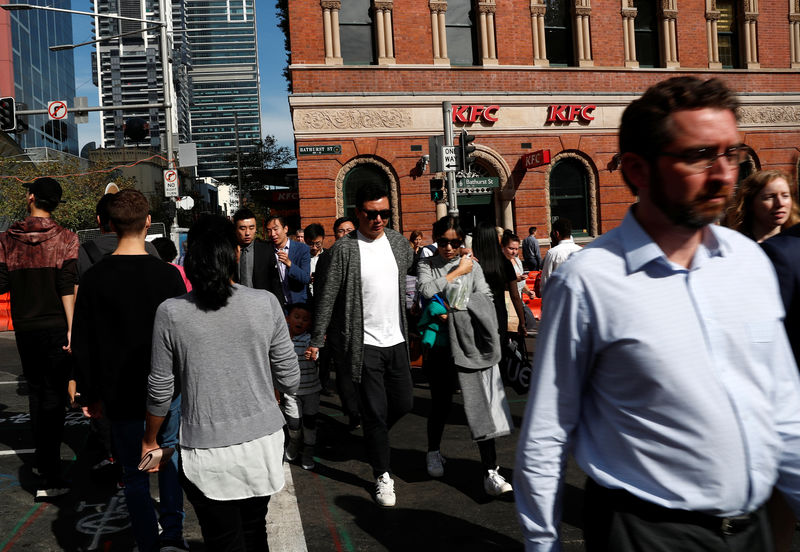By Ambar Warrick
Investing.com-- Australian consumer sentiment improved slightly in December, a private survey showed on Tuesday, although concerns over inflation and rising interest rates kept confidence pinned near recession lows.
The Westpac Melbourne Institute Consumer Sentiment Index rose 3% in December to 80.3, recovering from an over two-year low. The index had plummeted 6.9% in November to 78.0, following a stronger-than-expected inflation reading and signs of worsening economic activity.
December’s improvement was largely driven by increasing amounts of speculation that the Reserve Bank will wind down its current rate hike cycle soon, as well as improving trends in tourism.
Consumers also remained confident in the labor market, Westpac said in a note. This helped lift the outlook for household finances, and also saw consumers espouse an improved medium-term outlook for the economy.
On the other hand, consumers remained negative over inflation, rising interest rates, and worsening economic conditions.
Australian consumer inflation surged to a 30-year high in the third quarter, driven largely by increased import costs and rising food prices. This also saw third-quarter economic growth rise less than expected, indicating that a post-COVID boom was now running out of steam.
Business activity indicators from the country also lagged in recent months, as did consumer spending, which is a major driver of economic growth.
“At least there has been no further deterioration (in sentiment) since the September survey and, in the case of interest rates, there are even some signs that the news is becoming viewed as slightly less negative – consistent with the notion that the bulk of the interest rate tightening cycle is now behind us,” said Bill Evans, Chief Economist at Westpac.
Evans also noted some improvement in the outlook for house prices, with more consumers seeing a recovery in prices from sharp declines this year.
Still, Evans said that Australian households remained “deeply risk averse,” preferring to hold cash and reduce debt over participating in equity and real estate markets.
The Reserve Bank, which raised interest rates last week, has also signaled that it will keep hiking rates until inflation comes closer to its annual target.
